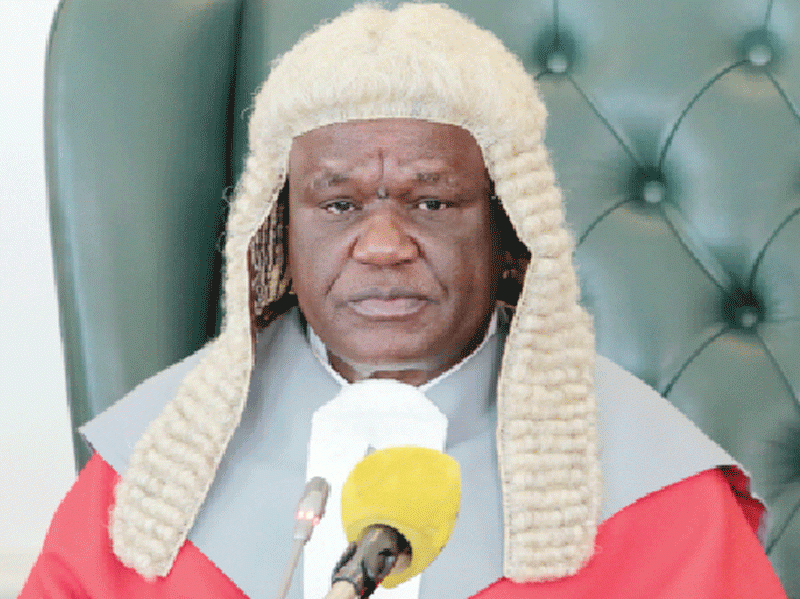
I hiked one day from Marondera to Harare and a conversation on compliance with the law and the drivers of voluntary compliance ignited in the vehicle because the driver used a dirt road to avoid a toll-point.
With claims of more religion, extant morals of culture and a communal disposition, why is it that some societies fail at the concepts of voluntary compliance, duty to contribute, and respect for public goods, shared resources and spaces?
In contract, some societies thought to be morally bankrupt, individualistic, atheist, unbridled by religious canon, and far near-the-cliff in post-modernism, are models at these virtues?
What makes the honour system – where compliance such as in payment of public transport fares without supervision, surveillance or enforcement – work in other places and not in some?
What makes people respect the rules of a traffic intersection, and stand in a queue and respect the process, over other societies?
One is driven to reflect on multiple questions of philosophy, society and shared existence in space and time.
One may question the very concept of morality and belief system.
One may yet question whether what we call communal societies are truly that, and another the social drivers of compliance and deviation. Another will consider how society is regulated, and much more.
- Zanu PF quashes push for diaspora vote
- No internet connectivity at RG’s offices countrywide
- Marondera drug lord busted.
- Residents fume over delayed budget consultations
Keep Reading
In this piece, I want to attend to only one element – regulation through law-making.
Law regulates our public affairs and how we interface and transact socially, economically and politically, even spiritually.
Protection and advancement of the concepts of public goods, spaces and resources, hinge in many ways on compliance with legal edicts.
Bad laws repulse compliance and are resisted by the people. They are selectively enforced. Good laws are embraced.
This is the most important consideration for efficacy of the law and its recognition, acceptability and self-adjustment of behaviour to align by those who are subject to that law.
But what makes people recognise, accept and adjust behaviour according to a law?
The most functional legal systems are less regulated, have more self and peer regulation and have voluntary compliance.
How do we achieve that?
For instance, one tends to find less alcoholism problems and less drinking in public in countries that allow public drinking, yet in those where public drinking is illegal, you often find bars and clubs and bottle stores and taverns and shebeens and empty alcohol container filth and unruly drunk folks everywhere.
Why? Here are some principles:
Necessity. Not everything needs a law. A law is not the universal solution. Some problems are better dealt with by other means.
A bad economy cannot be fixed by laws, as with bad politics and societal decay.
Dialogue, civic education, and responsible and productive citizenship cannot be substituted for the law.
Necessity also means laws must be science and fact-based, objective.
They must be based on correct and sufficient data, with proven arguments of superior force.
In any event, the law does not rest on nothing: it rests on an established shared value system and culture.
Dealing with those fundamentals is more important than what the black and white letter law says.
So, some things simply require us to amend our attitude and behaviour, not the law.
Overregulation. Do not over-regulate. Only make a law if the issue fails to lend itself to resolution any other way.
Law by its nature invites coercive enforcement when the need so arises.
The best law is behavioural and attitudinal, not positivist. Law takes away agency and control, and makes people feel caged.
The natural response is resistance and revolt. Overregulated societies are rebellious, poor, unfree, uncreative and depressing.
Self-regulation is the most important form of regulation. Laws that are viewed as weapons and tools risk losing respect.
Solutions. A law should create solutions to real problems, not create problems. The problems that the law seeks to address must be real and not imaginary - they must not be strawmen.
On proportionality, if a law brings more harm than good, it is no good law.
A law promulgated as a self-serving act to the lawmaker or ruler of the day is no good law.
Benefit. Focus should be on benefit and dividends to all, or at the very least the majority.
A law with no broad-based dividends deserves no space in the statute books.
Post the age of dynasty and executive monarchy, we no longer legislate for the protection and grandiose of the mighty ruler and emperor. The mission is the people, always.
Expense. Do not built around a law, an institutional and administrative infrastructure which is expensive, bureaucratic and frustrates people.
Also, all things considered, if the costs of such a law being put in place in the first place are disproportionately higher, not to be justified by whatever miniscule benefit may accrue at some point in an uncertain future, then do not do it.
Efficiency and cost of compliance. When a system or mechanism is well-run, you increase compliance.
Both the mechanisms for compliance and the enforceability must yield to a high degree of efficiency.
Efficiency incentivises compliance. Do not build bureaucracy. We often say make the cost of non-compliance higher. But I posit that is the wrong approach.
The correct approach that elicits the right kind of responses is to make the cost of compliance cheaper and the process of compliance seamless.
Do not make it difficult to register anything; do not make it difficult to pay taxes, a licence, a fee, and so on.
Make compliance efficient, inviting, attractive and rewarding.
Clarity. Lawyers thrive on nebulous laws; autocrats too. Judicial harassment and instrumentalisation of the law thrive in ambiguity.
Not all ambiguous laws are accidental; many are intentional because the lawmakers built with an agenda in mind, and not necessarily a good one.
Thus eliminate all ambiguities to the extent possible (I know there are complex exceptions). Laws must be intelligible, capable of interpretation within existing rules of interpretation, and capable of precise meaning.
Consistency. A law must neither self-contradict nor contradict others in substance and effect.
The law must build on what is there, and not subtract. Revisions to grundnorums (the basic norm that forms the basis of a legal order) especially must be kept absolutely minimal.
The law is a disciplined vocation that thrives in consistency, thus, order. In no way does this imply subtracting from the concept of the living law.
Here, I align with Thomas Jefferson who, in 1816, wrote: “I am certainly not an advocate for frequent and untried changes in laws and constitutions.
I think moderate imperfections had better be borne with; because, when once known, we accommodate ourselves to them, and find practical means of correcting their ill effects.
But I know also, that laws and institutions must go hand in hand with the progress of the human mind.
As that becomes more developed, more enlightened, as new discoveries are made, new truths disclosed, and manners and opinions change with the change of circumstances, institutions must advance also, and keep pace with the times.
We might as well require a man to wear still the coat which fitted him when a boy, as civilized society to remain ever under the regimen of their barbarous ancestors”.
Enforceability. Unless the law can be enforced, practically, realistically, effectively and efficiency, do not pass the law.
You will undermine the institution of the law and invite contempt. And enforcement is not another word for punishment. Not everything needs punishment.
The sting of a law should not be fear of punishment.
Rather, it should be inner willingness to comply out of perceiving the benefits of compliance to the individual and the collective.
Overregulated societies are naturally rife with punitive laws. Yet punitive laws breed contempt, rebellion and non-compliance.
Laws must be facilitatory, not booby traps seeking victims.
Openness and inclusion. There is a process and substance element to this: laws that come from nowhere, whose origins are unknown and unclear, will meet with suspicion, resentment and resistance.
This is even more so when consultation is feigned and groups and peoples are excluded.
The way laws, as with decision-making, should ideally work is that we consult and debate, and the most refined of ideas, objectively, carry the day.
Not all ideas and not all laws will succeed, but by debate we reduce the chances of failure, and it will be such that we all are content and satisfied that we made the best possible decision under the best available information, facts and arguments.
That way, we collectively own our failures, with no gripe and no witches to hunt.
Humaneness. Laws made for humans must be humane. There must be recognition that different laws affect different people differently.
People experience societies and laws in disparate ways depending on their circumstances, station and contextual realities.
A wise lawmaker will think of the effect and impact across the spectrum, with a view to ensure less burden and more protection, benefits and support accruing to the more likely to be affected negatively in any dimension by the said law.
The morality and power of the law do not come from the text and what the enforcer can do. It comes for acceptance of the idea of the law, the process that fed into that law, and the collective utility of that law – whether one likes that law or not.
This is what leads to compliance and what makes a body of law and a legal system respectable. I so submit.
*Musa Kika is a Zimbabwean jurist and human rights and constitutional lawyer. He can be contacted at mkika@llm17.law.harvard.edu










